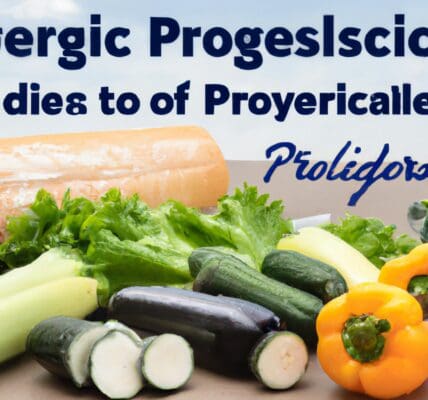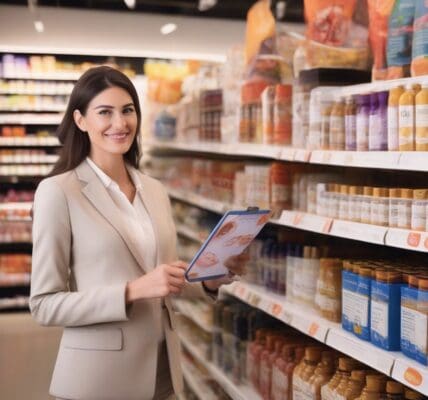In recent years, the retail landscape has been shifting towards sustainable practices, and one of the most impactful trends is the growing adoption of reusable packaging. Companies like Sprouts Farmers Market exemplify this movement by forming innovative partnerships focused on reducing single-use plastics and enhancing customer experiences. This article will explore the benefits and examples of reusable packaging collaborations in retail, highlighting the potential for improved conversion rates, increased customer loyalty, and a more sustainable business model.
The Shift Towards Sustainability
Increasing consumer awareness of environmental issues drives the demand for sustainable packaging solutions. Research has shown that 72% of consumers prefer to buy products in packaging designed for reuse over single-use options. Retailers recognizing these preferences are rethinking their packaging strategies and implementing sustainable practices that not only address environmental concerns but also improve business outcomes.
For instance, Sprouts Farmers Market recently entered into a partnership to enhance its reusable packaging efforts. By introducing a system that allows customers to return containers for sanitization and reuse, they cater to eco-conscious shoppers and create a meaningful impact on their supply chain. Such an initiative aligns perfectly with the rising tide of consumer demand for planet-friendly practices.
Benefits of Reusable Packaging Partnerships
1. Enhanced Customer Experience
Retailers that offer reusable packaging systems simplify the shopping experience. Customers can enjoy convenience and are likely to perceive greater value when they engage in environmentally responsible practices. A seamless return system can encourage repeat patronage as customers value not just the product, but the experience surrounding it.
2. Cost Reduction
Transitioning to reusable packaging can lead to cost savings over time. Though initial investments may be significant, the reduction in material costs associated with single-use packaging, coupled with savings in waste disposal fees, can offset these expenses. For example, Unpackaged, a UK-based company, has leveraged reusable packaging in their grocery stores, leading to a noticeable decrease in overall packaging costs.
3. Increased Brand Loyalty
Brands that prioritize sustainability can differentiate themselves in a crowded market, fostering strong customer loyalty. A study shows that 66% of consumers are willing to pay more for products from companies committed to positive social impact. By engaging in reusable packaging partnerships, brands can cultivate a loyal customer base willing to support their efforts.
4. Regulatory Compliance
As governments worldwide increasingly impose regulations on single-use plastics, adopting reusable packaging becomes not just a preference, but a necessity. Retailers that proactively establish partnerships to implement sustainable practices can avoid potential penalties and stay ahead of compliance issues while solidifying their reputation as industry leaders.
Notable Examples of Reusable Packaging Collaborations
Sprouts Farmers Market’s partnership represents an emerging trend, but it is not alone. Other innovative companies are also making strides in this area:
– Loop: A global reuse platform, Loop collaborates with brands to create reuse systems for everyday products. By allowing consumers to purchase products in durable containers that can be collected, sanitized, and reused, Loop addresses both convenience and sustainability.
– TerraCycle: Partnering with leading consumer goods companies, TerraCycle operates waste-free programs that allow brands to repurpose their packaging. Through initiatives like “Zero Waste Boxes,” retailers can maintain a circular economy, extending the lifecycle of their products.
– IKEA: The furniture giant has started exploring reusable packaging for its products, enabling customers to return packaging for future use. This initiative not only reduces waste but also encourages customer engagement and brand loyalty.
The Future of E-Commerce and Reusable Packaging
As e-commerce continues to grow, the need for sustainable packaging solutions in online shopping has never been more critical. Brands that adapt to the demands of eco-conscious consumers by offering reusable options in their online stores can significantly boost conversion rates. By highlighting sustainable packaging practices in marketing campaigns, retailers can attract a wider audience and improve SEO results, drawing in more visitors interested in sustainable shopping options.
For online retailers, implementing a straightforward return process for reusable packaging can further streamline operations. Providing customers with easy-to-follow instructions for returning and reusing packaging will enhance the customer journey and deliver an eco-friendly shopping experience.
Conclusion
The emphasis on reusable packaging is not merely a fleeting trend but a pivotal shift in how retailers operate in an environmentally-conscious society. As more brands pursue partnerships focused on sustainability, they can improve customer experiences, achieve cost savings, and foster brand loyalty. This strategy positions them favorably in a highly competitive marketplace. The future of retail hinges on these innovative practices, making sustainable solutions an imperative for businesses aiming for longevity in today’s retail environment.











